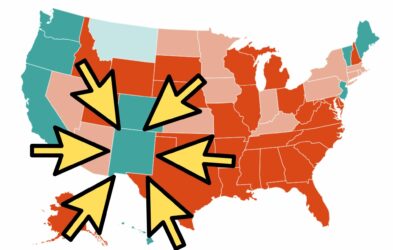This is a full transcript of our National Strategist and Policy Analyst Geoff Sugerman’s testimony at today’s (May 29, 2017) hearing of the Nevada State Assembly Committee on Health and Human Services in support of SB 261, an assisted death bill. We have formatted the testimony and added subheadings for clarity.
*
Chair Sprinkle, Members of the Health Care Committee, my name is Geoff Sugerman. I am here today representing the Death with Dignity National Center. We are grateful to Senator Parks for introducing SB 261 and for inviting us to help work on the provisions of this law. The Death with Dignity National Center is non-profit that began shortly after the passage of Oregon’s Death with Dignity Law and was formed by the organizers and original drafters of Oregon’s law. We have worked with Legislatures in several other states to help craft their own versions of Oregon’s law.
In 1994, I was hired by a small group of committed citizens to manage the campaign to pass Oregon’s Death with Dignity Act. Today, on Memorial Day, I would like to pay tribute to those brave souls who, while battling their own terminal diseases, showed up day after day, week after week, to truly be the driving forces behind that successful campaign. Ordinary people who paved the way and in some very sad cases were never able to use the law themselves. You will never know them, but just as soldiers we honor today fought for our freedoms, these dying patients fought for theirs.
After Oregon’s law was approved by voters in 1994, it faced three years of court challenges, all the way to the US Supreme Court, and a second, even more decisive vote of Oregon citizens. The law went into effect 20 years ago this November. Since then, 1,200 Oregonians have used this law safely and compassionately. Our law has been passed in essentially the same form in California and Colorado, Vermont and Washington, DC.
Despite the flawless implementation of this bill in every jurisdiction, you will hear the very same arguments from opponents today that we heard 20 years ago. Threats of coercion, unscrupulous doctors and insurance companies conspiring to deny patients care, targeting the disabled. Not one of them is true. There is not a single case of coercion or forced participation anywhere. Not one.
Throughout SB 261, just as every state has done, you will see a series of safeguards and a well-defined process to protect the patient, the health care professional, and the family—all designed to ensure that the patient is in control, acting voluntarily and able to make their own health care decisions.
The multiple safeguards in SB 261 include:
- A diagnosis the patient is within six months of death, verified by a second opinion. That is the
same standard used to determine participation in hospice care. - A mandatory counseling referral if either the primary or attending physician believes the
patient may not be competent to make this health care decision. - Two oral and one written requests. The written request must be witnessed by at least two
people, one of whom cannot be the physician, a family member or someone who might receive
an inheritance from the individual. - Two waiting periods, 15 days between oral requests and at least 48 hours after the written
request. - An independent meeting with the physician to ensure the patient is not being forced or
coerced. - Information must be provided to the patient on all forms of palliative care, hospice care and
other end-of-life options. - The patient may opt out at any time and for any reason.
- The patient must self-administer the medication.
- Any health care professional may choose not to participate.
These safeguards protect the patient. But they also protect the medical community. Not a single doctor, pharmacist, health care worker or facility has ever had to participate in Death with Dignity against their will. That opt out provision was included in the very first version of the law we drafted back in 1994. And it remains today because we believe every person involved in this process must do so voluntarily.
We know that there are those who believe that only God can determine the time of death. We do not oppose their views. We simply argue that there are many who share a different view of the path of their final days. And in this law, you protect their right not to participate.
The Death with Dignity National Center recently commissioned a poll of Nevada voters and found that 72% of your citizens want this option. We have included the entire survey, cross tabs and all, in the legislative record. Support for the bill is bipartisan, diverse, and broad-based, with majorities of women (69 percent), men (76 percent), Democrats (80 percent), Republicans (66 percent), Independents (67 percent), Catholics (66 percent), Protestants (65 percent), and voters of all ages and education levels in favor of expanding the rights of the terminally ill.
Recently, Oregon was named by the New England Journal of Medicine as the state where the most people die at home and in hospice care, surrounded by loved ones and family. In control and at peace in their final hours. This law will not diminish our love and care of dying patients. It will enhance those efforts to make patients as comfortable as possible as they face the inevitable on their own terms. It will give these dying patients the knowledge that at the end of their lives, they will have control.
We urge your passage of SB 261.
Thank you.

No comments.